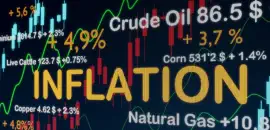Some analysts believe President Biden is continuing the neo-protectionism of the Trump era, although with a bit more polish. But I believe Biden’s trade stance has evolved over the past two years to a growing commitment for managed trade combined with industrial policy.
In her testimony before Congress after becoming Treasury secretary, Janet Yellen stated that the Biden administration would pursue a robust trade agenda and “reach out to allies, rebuild bridges, and pursue trade agreements that support American prospects and put workers first.” She also indicated that the Biden administration would undertake a comprehensive review of Trump’s trade policies toward China, including the interim trade deal signed in January 2020.
Two years later, tariffs are still in place for $350 billion of Chinese goods imported into the United States, partly because China did not live up to its commitment to purchase $200 billion of U.S. goods and services in 2020 and 2021. National security is also a consideration, especially as tensions between the two countries have increased over Taiwan. This helped to gain passage for the CHIPS Act to fund domestic production of semiconductors.
U.S. Faces Trade Disputes With EU
More surprising is the growing dispute between the European Union (EU) and the U.S. over various trade issues. While the Biden administration has converted a portion of Trump-era tariffs on aluminum and steel imports from the EU into voluntary export restraints and quotas, they nonetheless are a form of trade restraint.
Meanwhile, there is growing European disenchantment with the Inflation Reduction Act (IRA), which contains nearly $370 billion in subsidies to promote alternatives to fossil fuels. French President Emmanuel Macron and German Chancellor Olaf Scholz have complained that the $7,500 tax credit for electronic vehicles are applicable only to vehicles with key inputs manufactured in the U.S.
This matters to Europe because the EU accounts for more than a quarter of the world’s electric vehicle production, versus 10 percent for the U.S. Janet Yellen has indicated that the EU and Japan would need to negotiate new trade agreements with the U.S. to meet the mineral-sourcing requirements for an overhauled electric-vehicle tax subsidy.
According to a Wall Street Journal report, Germany and France have expressed support for an EU effort to push back against tax breaks, which they contend gives unfair advantages to American companies. The EU has lobbied the U.S. to rewrite the rules so European companies can benefit. If not, the EU could respond by making it easier for European governments to subsidize their own companies or earmark EU funding for similar projects.
Georgina Wright of the Institut Montaigne contends that the real reason Europe is concerned about the IRA is the signal it sends about the U.S. promoting industrial policy. The IRA challenges areas of EU industry via tax credits to promote carbon capture, investment in clean technologies, and mitigation of greenhouse emissions—areas where the EU already is a global leader or wants to deepen expertise. This is the reason Europeans label the IRA protectionist and in violation of World Trade Organization (WTO) trade rules.
What is Government's Role in a Free-Market Economy?
In an interview with the Financial Times, U.S. trade ambassador Katherine Tai acknowledged that the U.S. was now actively coordinating trade policies and domestic investment programs in contrast with its traditional goal of supporting trade liberalization. This gets to the heart of the debate over the role of government in a free-market economy.
According to Robert D. Atkinson of the Information Technology and Innovation Foundation, a smart industrial policy should focus on high-value industries such as semiconductors, which have civilian and military applications and are difficult to revive once lost. However, critics counter that the government is worse than the free market at identifying successful firms.
What is clear is support for free market principles has faded in the last two decades. The catalysts include the rise of China, growing income inequality in the U.S., and supply-chain disruptions from the COVID-19 pandemic.
Both political parties have lost the post-war vision of the United States fostering a world in which economies would prosper via free trade. The General Agreement on Tariffs and Trade (GATT), which was enacted to eliminate trade barriers, was updated in 1993 to include the WTO as a mechanism for settling disputes. The Trump administration, however, repeatedly threatened to withdraw from the WTO, and it refused to appoint WTO appellate judges in 2019.
Three years later, the Biden administration has made no effort to reinvigorate the trade court or restore global leadership on trade. The risk is that it could let the WTO slide into irrelevance. If so, world trade could evolve into regional blocs that would each operate under a different set of rules. This would be a tremendous setback for the progress that was achieved during the post-war era.
A version of this article was posted to TheHill.com on February 3, 2023.
This publication has been distributed for informational purposes only and should not be considered as investment advice or a recommendation of any particular security, strategy, or investment product. Opinions expressed in this commentary reflect subjective judgments of the author based on the current market conditions at the time of writing and are subject to change without notice. Information and statistics contained herein have been obtained from sources believed to reliable but are not guaranteed to be accurate or complete. Past performance is not indicative of future results. No part of this publication may be reproduced in any form, or referred to in any other publication, without express written permission of Fort Washington Investment Advisors, Inc.




























